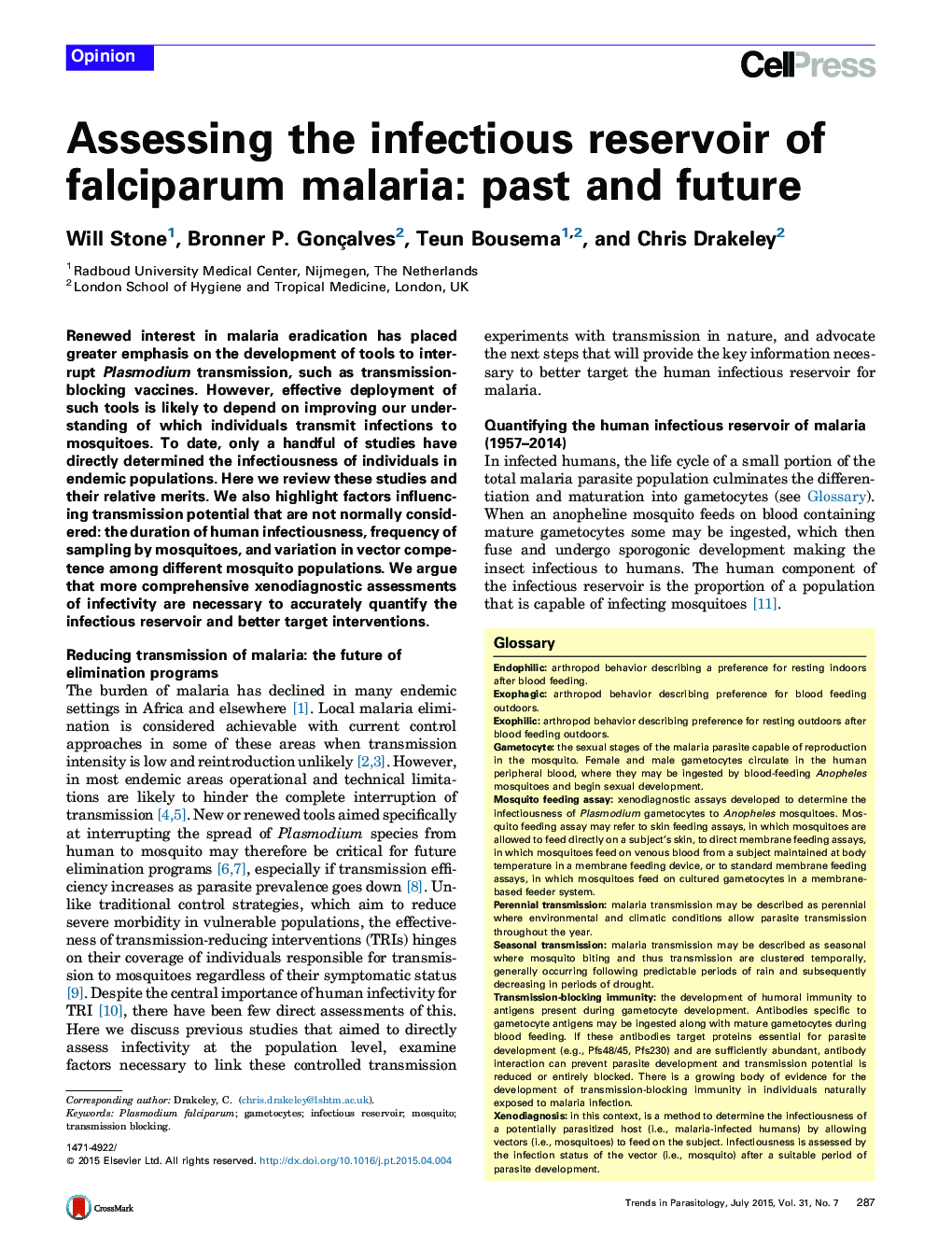| Article ID | Journal | Published Year | Pages | File Type |
|---|---|---|---|---|
| 3422949 | Trends in Parasitology | 2015 | 10 Pages |
•Malaria control and elimination could be enhanced by targeting human-to-mosquito transmission of the parasite.•A better understanding of which individuals in endemic populations infect mosquito vectors would improve targeting.•Studies that directly assessed the human infectious reservoir of malaria using xenodiagnostic approaches are critiqued.•Future direct assessments of infectious reservoir should consider factors affecting transmission potential, longitudinal infectivity to mosquitoes, and exposure to vectors.
Renewed interest in malaria eradication has placed greater emphasis on the development of tools to interrupt Plasmodium transmission, such as transmission-blocking vaccines. However, effective deployment of such tools is likely to depend on improving our understanding of which individuals transmit infections to mosquitoes. To date, only a handful of studies have directly determined the infectiousness of individuals in endemic populations. Here we review these studies and their relative merits. We also highlight factors influencing transmission potential that are not normally considered: the duration of human infectiousness, frequency of sampling by mosquitoes, and variation in vector competence among different mosquito populations. We argue that more comprehensive xenodiagnostic assessments of infectivity are necessary to accurately quantify the infectious reservoir and better target interventions.
